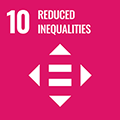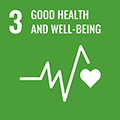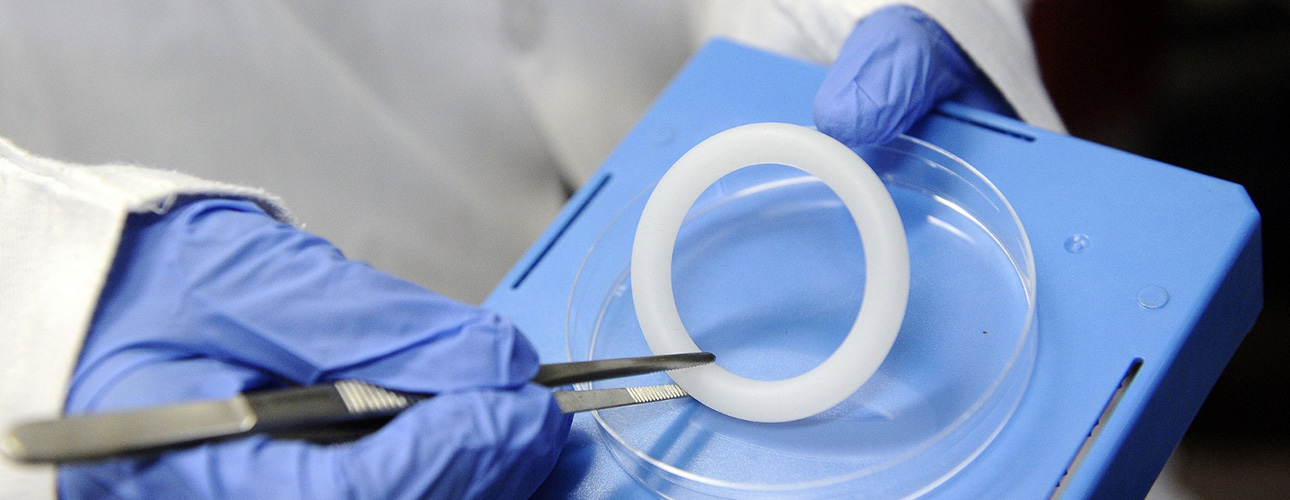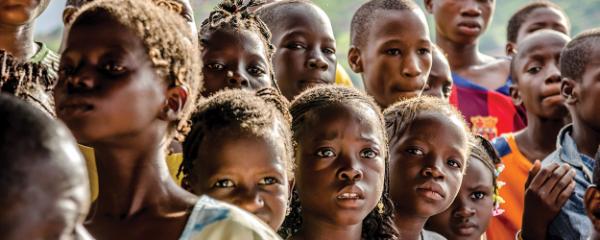Queen’s University is at the forefront of global efforts to develop products to protect women against sexually transmitted infection with human immunodeficiency virus (HIV).
For nearly two decades, researchers in the Queen’s School of Pharmacy have been supporting the development of a new drug-releasing vaginal ring to protect women from infection with the human immunodeficiency virus (HIV).
The monthly Dapivirine Ring, which is expected to reach market during 2022, will be the first long-acting option that women can use to reduce their risk of HIV transmission through vaginal sex, representing an important milestone in prevention technologies.
Research Challenge
HIV is a leading threat to women's health and well-being worldwide
If left untreated, HIV leads to acquired immunodeficiency syndrome (AIDS), a major global disease and a leading threat to women's health and well-being worldwide. According to recent estimates, 37.7 million people globally were living with HIV in 2020.
Despite global progress against the epidemic, HIV/AIDS remains the primary cause of death among women of reproductive age, and nearly 60% of new infections among adults in sub-Saharan Africa are in women. Young women in that region are three times more likely than young men to become infected with HIV.
In the continued absence of an effective vaccine against HIV, researchers across the globe have focused on development of new biomedical strategies to reduce HIV acquisition rates.
Our Approach
AN IMPORTANT MILESTONE IN PREVENTION TECHNOLOGIES
Prior to 2000, vaginal rings had only been practically considered for release of steroid drugs for contraception and hormone replacement therapy. In 2003, Queen’s University’s Professor Karl Malcolm published two seminal papers, the first describing a vaginal ring for release of a then lead-candidate known as microbicide, and the second describing the evaluation of the key physicochemical considerations for effective release of drugs from vaginal rings.
Between 2005 and 2006, in collaboration with the not-for-profit International Partnership for Microbicides (IPM) the research demonstrated for the first time that a potent small-molecule antiretroviral drug known as dapivirine, could be continuously released for many months from a silicone elastomer reservoir-type vaginal ring in quantities likely to provide protection against HIV transmission.
Since then, Queen’s and IPM have partnered closely to further develop the dapivirine ring technology and other innovative sexual and reproductive health technologies for women including a follow-on product, providing continuous release of two drugs – dapivirine and levonorgestrel – over three months, for protection against both sexually-acquired HIV infection and unintended pregnancy.
“The Dapivirine Ring is just the beginning. In continued partnership with IPM, our goal is to help in developing other multipurpose products that can provide further benefit to women’s sexual and reproductive health.”
- Professor Karl Malcolm
What impact did it make?
IMPROVING THE SEXUAL AND REPRODUCTIVE HEALTH OF WOMEN BY PROTECTING AGAINST HIV
The World Health Organisation recommended the dapivirine vaginal ring be included as part of a combined prevention package for women at substantial risk of HIV infection and regulatory approval for the ring has been granted in Zimbabwe.
The ring will be the first woman-centered, long-acting HIV prevention method to reach market in 2022.
IPM and the Microbicide Trials Network conducted two large-scale randomized clinical trials that found the ring to reduce the overall risk of HIV-1 infection in women by 35% and 27%, respectively. Further studies suggested an improved risk reduction of about 50%.
The research has dramatically changed the landscape around HIV prevention products, and particularly addresses the need for sustained release/controlled release solutions that are female-controlled.
Our impact
Impact related to the UN Sustainable Development Goals
Learn more about Queen’s University’s commitment to nurturing a culture of sustainability and achieving the Sustainable Development Goals (SDGs) through research and education.











